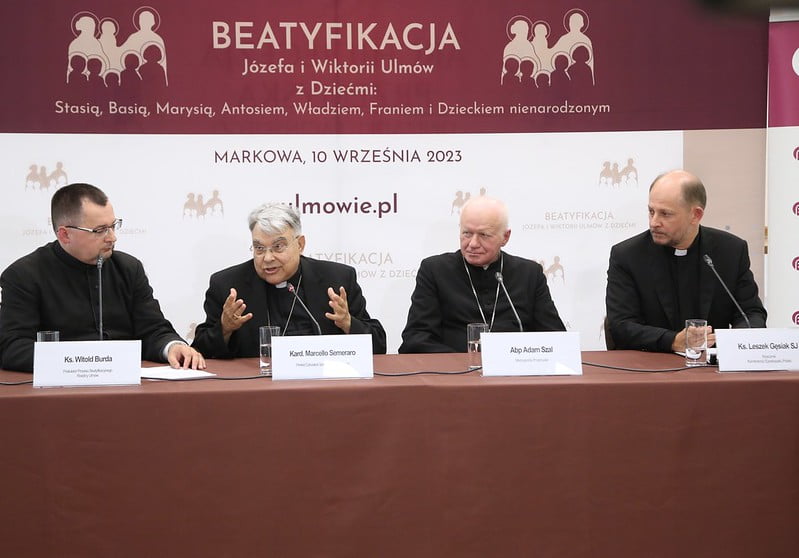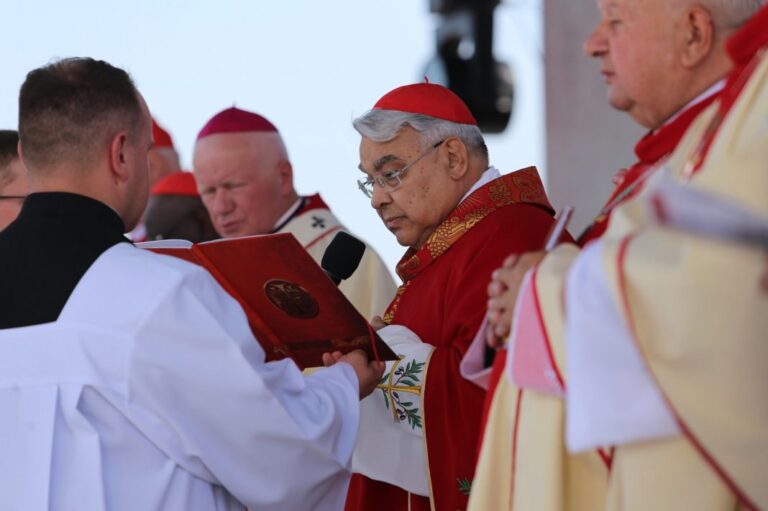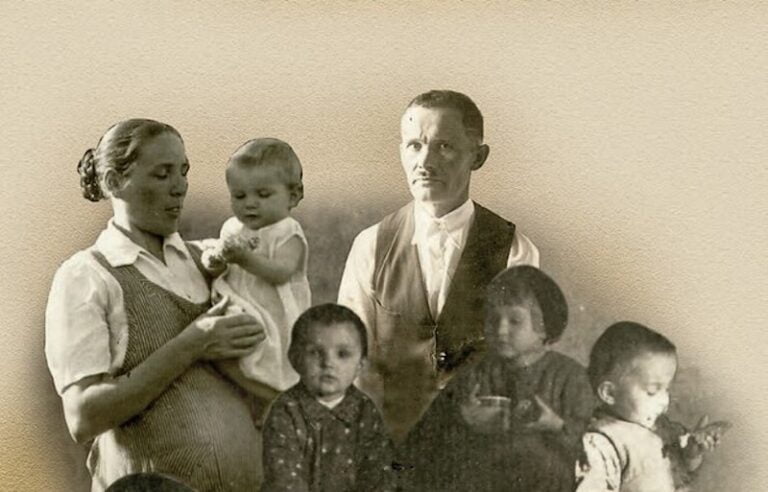Cardinal Semeraro: The particular element of the beatification of the Ulmas is that an entire family is beatified on the path of martyrdom
It is not simply that this was a good, noble, and even holy family, but that the…
It is not simply that this was a good, noble, and even holy family, but that the entire family suffered a martyr’s death,” said Cardinal Marcello Semeraro, Prefect of the Dicastery for the Causes of Saints, during a press conference in Łańcut on the eve of the beatification of the Ulma Family.
Cardinal Semeraro pointed out that in the concept of martyrdom in the Catholic Church, we are talking about someone suffering death at the hands of a persecutor who is motivated by hatred of the faith, or odium fidei, professed by the victim.
“The hatred was triggered on the part of the persecutors by the fact that this family took two Jewish families under their roof,” Cardinal Semeraro stressed. He added that from the entire story of the Ulma family, this “yes” in the parable of the Good Samaritan means that they stood up for the root from which the Savior Jesus Christ sprang. “The Ulma family took under their roof and kept the root of our faith,” he pointed out.
The Prefect of the Dicastery for the Causes of Saints noted that the second particular element of the beatification is that an entire family is beatified on the path of martyrdom. “In this beatification, we see the fruit of the action of God’s grace in the sacrament of baptism and in the sacrament of marriage,” he stressed.
In Cardinal Semeraro’s opinion, the third element of beatification is that children who were not guilty of anything were included in the beatification process. “The children were baptized in their parents’ faith and raised in that faith. So they are included thanks to their parents’ faith in their martyrdom,” he assessed.
The Prefect of the Dicastery explained that initially, the beatification process included the parents and six children. “It was known that the mother, Victoria, was in advanced pregnancy expecting a child. After careful analysis, it turned out that while Victoria was being barbarously murdered, the seventh child she carried under her heart saw the light. We are not talking about this as doctors, but we are talking humanly,” he stated.
Cardinal Semeraro noted that, as assessed by the Dicastery, “we are saying here that this child received baptism of blood. It was immersed in its mother’s blood, who suffered a martyr’s death.”
Archbishop Adam Szal, Metropolitan of Przemyśl, acknowledged that the beatification of the Ulma family is an extraordinary event. He recalled that John Paul II had obliged Episcopates at the turn of the century to look for witnesses to the faith, martyrs. He added that the beatification was a challenge for the archdiocese to bring these figures closer and to study whether this family deserved to be included in the catalog of martyrs of the Catholic Church. “This is the work of many people who interviewed living witnesses to these events. I want to thank the many people who took such a keen interest in this case and publicized it. We prayed for many years for the beatification to take place. It is a great grace from God,” he stressed.
Archbishop Szal assessed that we face the challenge of caring for the family. “This is the time to intensify efforts to make our families strong. Therefore, we are grateful to the Dicastery that the liturgical commemoration of the Ulma Family will fall on the day of the Ulmas’ marriage, July 7.”
Rev. Witold Burda, postulator of the Ulma Family beatification process, explained that the goal is to learn the truth about the lives and deaths of candidates for the altars.
Press Office of the Polish Bishops’ Conference
Translated by Sr. Amata Nowaszewska / Office for Foreign Communication of the Polish Bishops’ Conference


